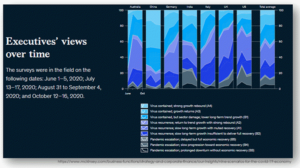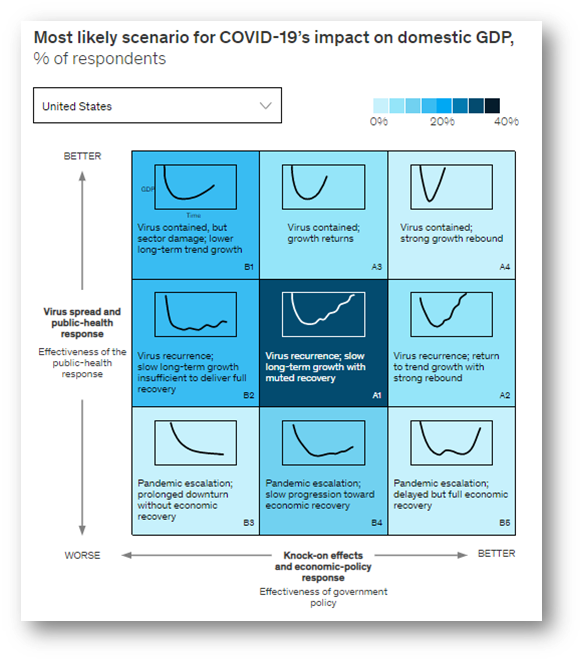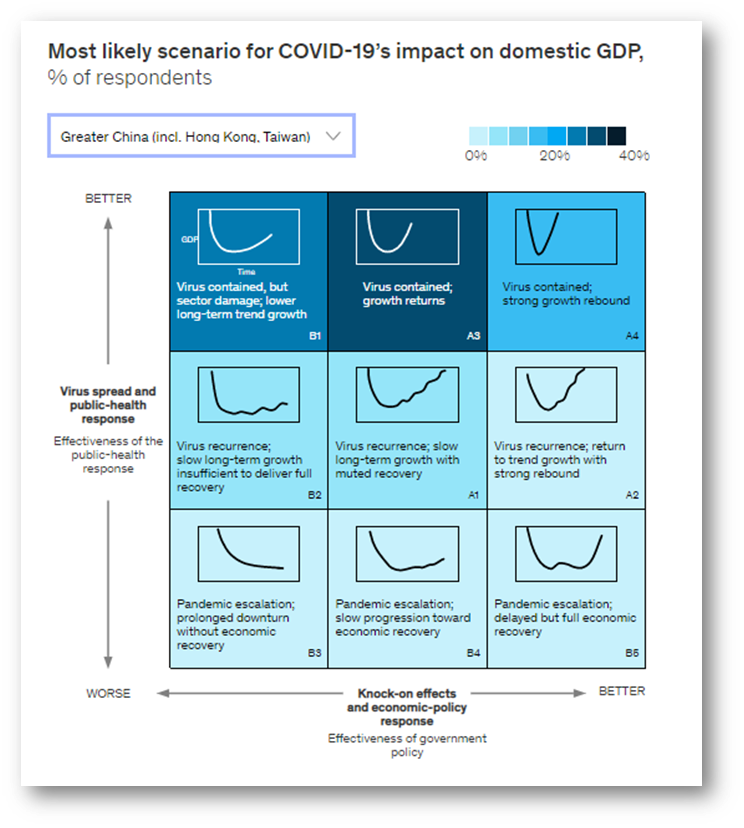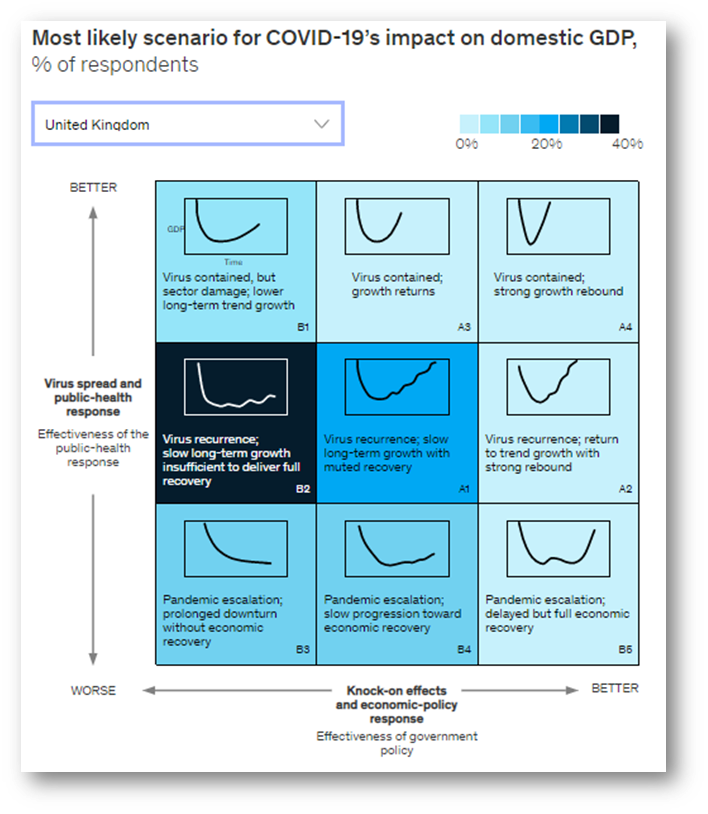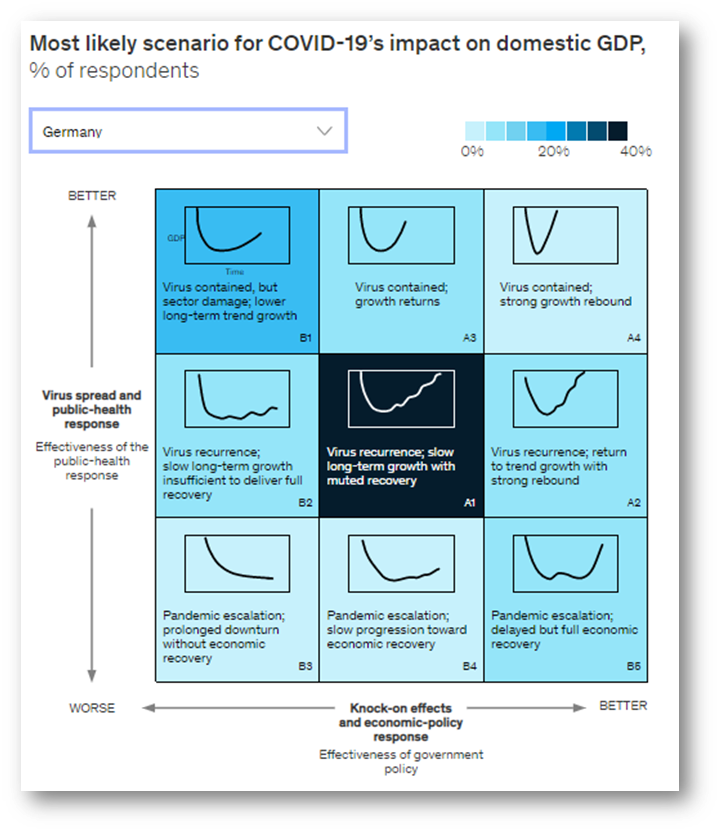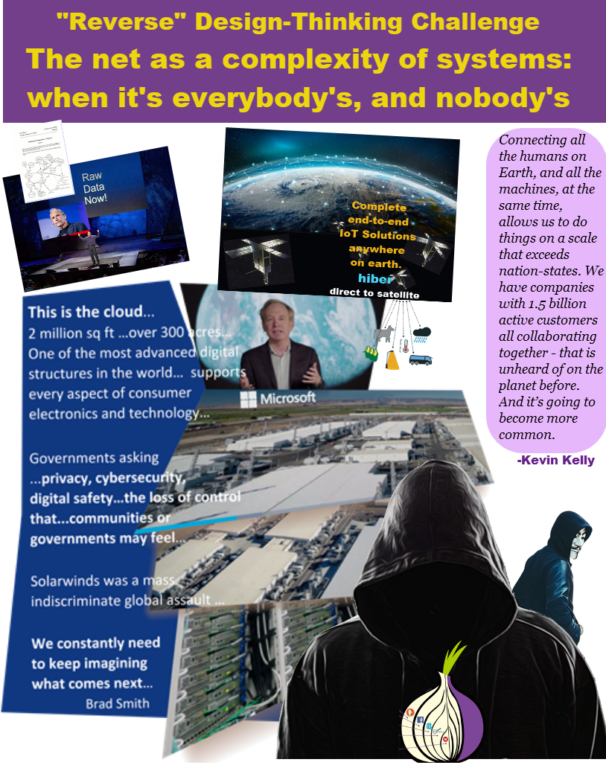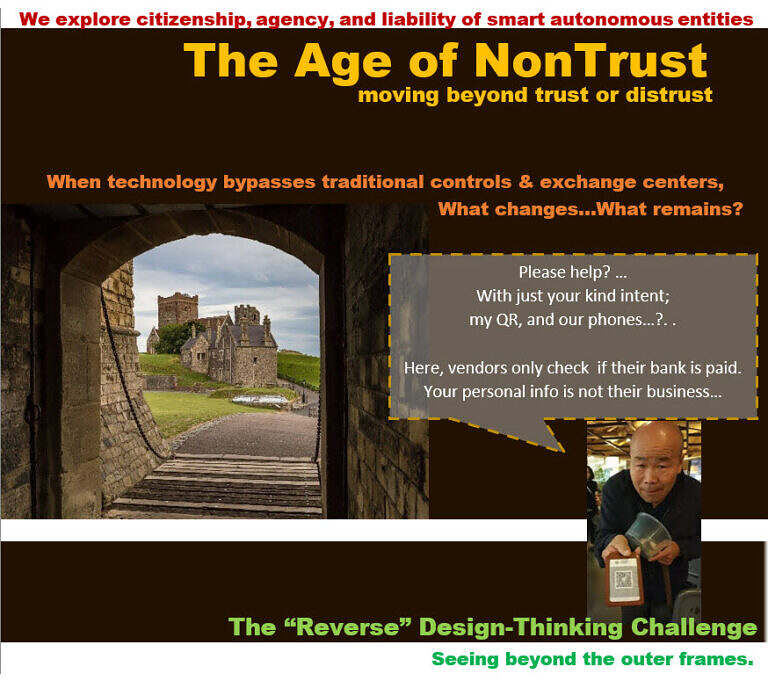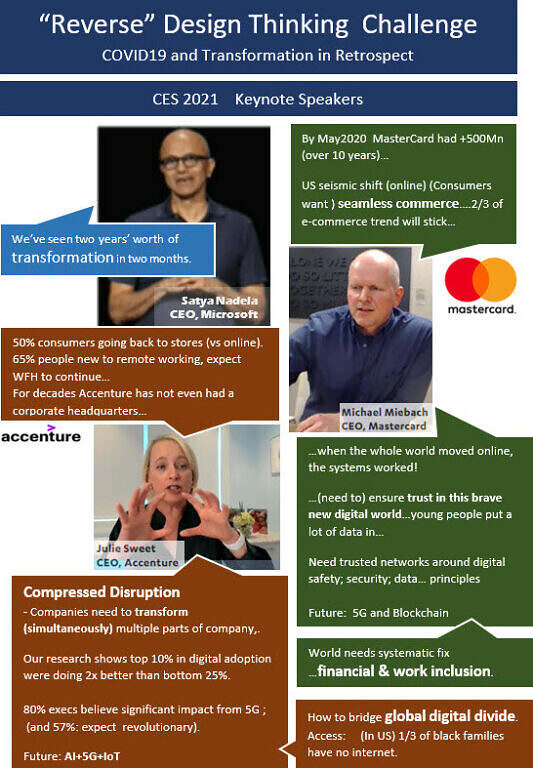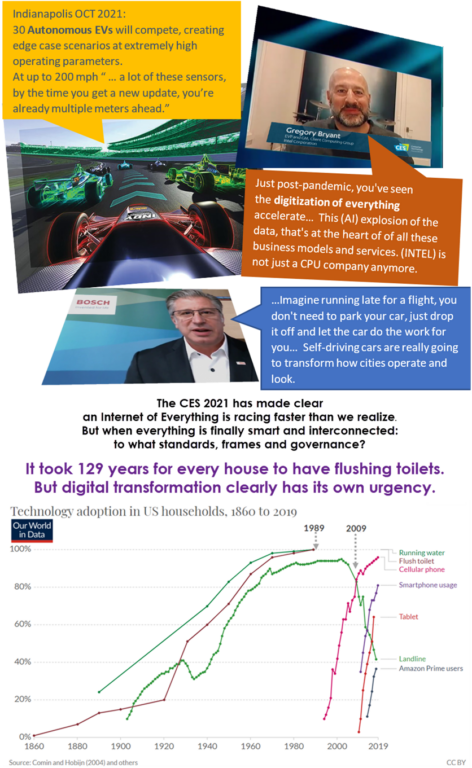Navigating a Sea Change in the Midst of Storms
Welcome to a series where we present key strategic thinkers’ findings. We begin with a macro view from McKinsey’s ongoing survey ( as of mid-October 2020) of how executives’ expectations have emerged and changed over time.
- Do they mesh with your own observations and perspectives?
- How might decision leaders’ outlook diverge around the world?
Think back to the initial disbelief and denial of the pandemic, followed by the shock of a second wave’s extent and complexity. The false optimism sobered into a grim resolve to face up to a further realization of the Covid19 as an ongoing reality of life- even as we sort out improvisations from adaptations, or actual phase shifts.
Economic Recovery and Containment of the Pandemic:
- Will the west reassess its approach as the pandemic now rolls into second and third pandemic? How much will it model from China’s more extensive and draconian zonal lockdowns?
- Will the centralized Chinese model influence how the western countries foster the creativity and initiatives of its free market, while reserving stronger central authority in crises?
- As the US election outcomes emerge, and with a breakthrough in a vaccine within the near term: how are business and economic expectations and decisions emerging?
Our western cultures’ greater individual freedoms and free-market processes have fostered vibrant and entrepreneurial initiatives. The race to a vaccine has now accentuated the contrast in approaches to government and markets.
Contrast the western emphasis on democracy and free markets, with China’s statist “platform” approach to economic development. China, over centuries of governing vast geography and population, evolved a centralized government and autocratic authority, while allowing individual provinces and entrepreneurs undefined or even loose – but quickly revocable – license. As in centuries before, China has kept its domestic markets relatively isolated from the world.
How has China tightened its grip on its buffer outpost HongKong with no concern for world reactions?
Confidence. Consider how China now positions Shanghai (and likely, Hongkong) as financial exchange centers to challenge US and European centers. Over the past years, the west powers have partnered – or at least, not challenged – the China Belt and Road program’s success. Nor has its physical expropriation of the South China sea met more than token outcries.
Democratic nations are baffled by how the larger China population trust/comply submissively to the state. At the core is an implicit contract: the individual exchanges individual freedom for the state ensuring basic and economic needs.
So it was, that China could impose comprehensive lockdowns and restrictions; and also have, in its nationalized systems, a ready infrastructure for a coordinated national crisis response.
Post Pax-Americana? The US will have much fences to mend even among its historical allies. It certainly has pushed nations to think more regionally or individually.
- How much did the US relinquish its world leadership these past several years?
- Has the US triggered an irreversible post Pax Americana era?
- Are we seeing a major divergence point in world order, as the 10 ASEAN member states and five other countries along with China, Japan, South Korea, Australia and New Zealand) coalesce into a massive China-backed trade deal aimed at cutting tariffs and establishing common rules for trade, e-commerce and intellectual property.


